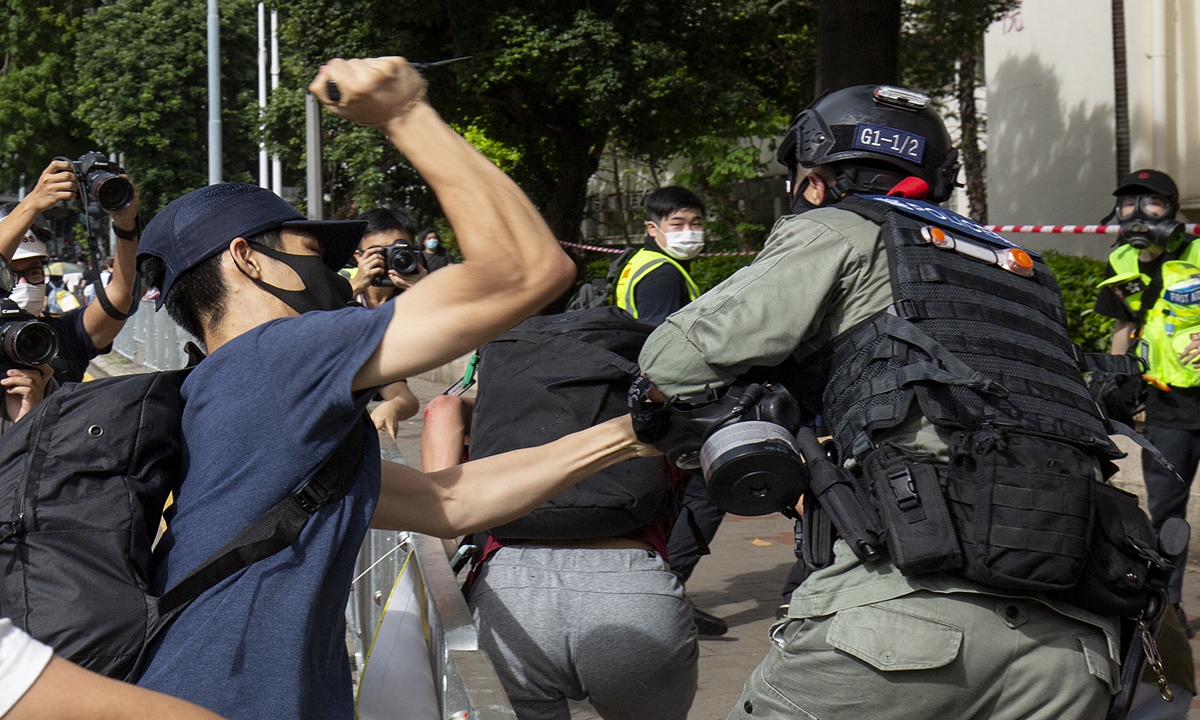Collecting DNA samples from people arrested for violating security law in HK ‘normal practice’

A protester uses a sharp object against a police officer. The Hong Kong Police Force's newly formed special unit to safeguard national security begins functioning decisively to end riots in the city on Wednesday. More than 370 people have been arrested as of press time. Photo: AFP
Is it necessary to collect DNA samples from people arrested for violating the national security law for Hong Kong?
The South China Morning Post reported that collecting DNA was rare in handling protest-related offenses, such as rioting, illegal assembly or assaulting police officers. The practice was usually reserved for gathering evidence to prove charges over drug possession, sexual assaults or other serious assaults, citing lawyer Janet Pang Ho-yan.
The lawyer said they were shocked to learn that the police handled the cases like this, and raised questions over what the DNA sample collection was for, and what they want to prove.
A source close to the Hong Kong Police Force told the Global Times on Wednesday that it is a "normal practice" based on the criteria in the police force ordinance.
The ordinance says that if someone is subsequently convicted of any serious offense, any DNA information derived from the sample may be permanently stored in the DNA database, and may be used under certain circumstances.
"In any investigation of an offense committed or believed to have been committed, an intimate sample may be taken from a person for forensic analysis if a police officer of or above the rank of superintendent authorizes it to be taken," the source said.
Lawrence Ma, a barrister and chairman of the Hong Kong Legal Exchange Foundation, told the Global Times that collecting fingerprints is no longer an effective way of detecting crime because criminals knows how to wear gloves to commit a crime.
"Many of the black-clad rioters in anti-extradition bill riots wore gloves and face masks to disguise their identity. It is imperative for law enforcement agencies to fully collect other biological samples such as body tissues and blood samples to identify the particular suspect, and to prove their identity to correctly charge them to stand before a court of law," Ma said.
In response to concerns that the DNA samples infringed on human rights or privacy, Ma said it was not common in the old days because fingerprints would be enough. However, fingerprints would no longer be as effective as before. Crime detection and prevention always take precedence over general human rights protection.
Similar speculations have connected the case to the so-called campaign to collect samples to build a vast DNA database, which observers slammed as an old trick to smear China under the guise of human rights.